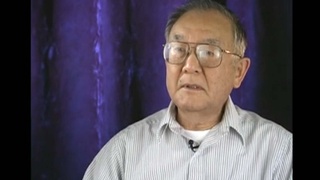Interviews
People have to believe in what they are doing in order to gain trust
We really believed in the education we were receiving. And I think that makes a big difference in education. If you really believe in the education that you were receiving then you sort of participated in it. And it was just the opposite of what was happening in Manzanar. I think that’s the same thing that’s required when you have any kind of movement.
People have to believe in what you’re doing. It’s not up to the leaders, or anything. It’s just something that has to be there, and that the job is to make what you do credible. People have to trust you. One of the things that is important is that they have to trust you with their money, and we tried to be very open about that—very candid, always had our books open. We only asked for money when we needed it. We didn’t pay any rent, and we didn’t pay any salaries. So we tried to put people’s monies to the best use we could make it. And I think that resonates. But also it’s the ideas and everything else, the bylaws. People pick up on that and then the thing works.
But if you tell me how to make something work, I couldn’t tell you. (laughs) I could just tell you what we did. That’s all. And it seems to work. Why, I don’t know. But I think it’s something like that.
Date: June 12, 1998
Location: California, US
Interviewer: Darcie Iki, Mitchell Maki
Contributed by: Watase Media Arts Center, Japanese American National Museum



